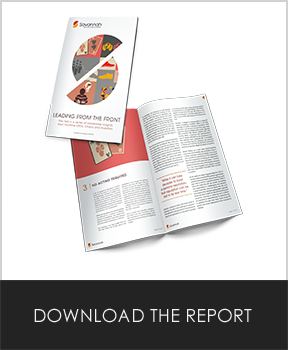Leadership can be a confusing subject. For years academics have pored over surveys of senior executives, observed politicians, examined the lives of great leaders of the past, even studied football  managers, in an attempt to dissect the anatomy of leadership, to distil its essence. Heroic leadership, charismatic leadership, Level 5 leadership, authentic leadership, quiet leadership, and many others. Some experts have even turned leadership on its head, preferring to approach the issue from the perspective of those individuals being led — followership theory.
managers, in an attempt to dissect the anatomy of leadership, to distil its essence. Heroic leadership, charismatic leadership, Level 5 leadership, authentic leadership, quiet leadership, and many others. Some experts have even turned leadership on its head, preferring to approach the issue from the perspective of those individuals being led — followership theory.
But if anything is clear from the abundance and diversity of leadership theory, it is that there is no magic formula for great leadership. There are no universal truths. Not that surprising given the complexity and breadth of leadership roles in business from start-up founders to Fortune 500 CEOs and everything in-between.
As management guru Tom Peters, the author of In Search of Excellence (and many other books) once noted, leadership is “confusing as hell.” “If we’re going to make any headway in figuring out the new rules of leadership, we might as well say it up front,” he observed. “There is no onesize-fits-all approach to leadership. Leadership mantra #1: It all depends”.
While there may not be a blueprint for leadership it is still possible to learn valuable lessons, both from leadership theory and practice. At Savannah Group, we are privileged to spend a significant amount of time with leaders across a variety of industries who are responsible for the fortunes of some of the largest listed businesses as well as dynamic, fast growing privately owned businesses.
At our dinner events and breakfast briefings, conversations can cover a wide range of leadership related issues. We have collected and collated comments from the Chairmen, NEDs, CEOs and Investors that participated in these events in order to provide some real-world insights and anecdotes from current business leaders. The leadership issues we have selected from the many discussed reflect those mentioned more frequently, and include the importance of selfawareness and self-knowledge, team leadership, decision making, leadership styles, and the value of organisational culture.
Many of the insights reflect the thoughts and opinions of individuals currently in important positions of leadership. They lead others on 4 daily basis, and their reputations, careers, and the fortunes of the organisations that they lead depend on their ability to be successful and effective leaders. They speak with authority. While other insights that we capture represent the views of the investors who are responsible for hiring leaders, or letting them go.
And, for anyone in a position of leadership, or who aspires to one, there will inevitably be some useful lessons that can be taken and applied in practice.




